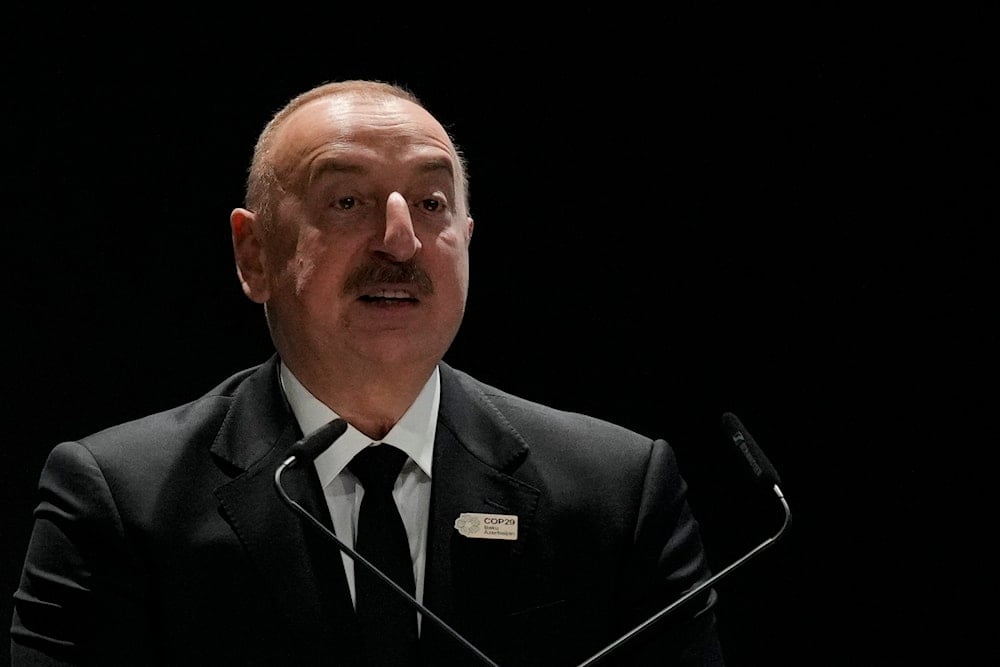Azerbaijan urges Armenia to fulfill key demands for peace agreement
The peace deal was first drafted in March; however, the two countries have yet to sign the agreement despite both sides insisting that they are ready to finalize the agreement.
-

Ilham Aliyev, Azerbaijan's president, speaks at a summit of the leaders of Small Islands Developing States at the COP29 U.N. Climate Summit, on Wednesday, November 13, 2024, in Baku, Azerbaijan. (AP)
Azerbaijan said that Armenia needs to meet its "legitimate demands" before the two sides can sign a peace deal, even though they had already agreed on the terms last month.
On March 14, the two former Soviet Republics confirmed they had finalized negotiations to end their decades-long conflict, reaching an agreement on the draft text of a potential peace treaty.
"Our demands are well known to Armenia, they are not new. We have been voicing them for a long time, but have yet to receive any serious response from Armenia," Azerbaijani President Ilham Aliyev stated at a press conference on Wednesday.
"The OSCE Minsk Group must be dissolved," Aliyev said, referring to the now-defunct OSCE Minsk Group (France, Russia, US), formed in 1991 to mediate the conflict between Baku and Yerevan. The Azerbaijani President also reaffirmed his country's longstanding demand to delete a clause in Armenia's constitution citing the independence declaration, which includes claims over Karabakh.
"Once these two conditions are met, there will be no obstacles to signing the peace treaty," Aliyev stated, adding that "The ball is in Armenia's court. If Armenia truly wants to sign the peace agreement, it must accept these two legitimate demands of Azerbaijan."
Armenia has stated it is prepared to finalize the peace deal without delay, as Prime Minister Pashinyan both set a 2027 vote on constitutional changes and accepted Azerbaijan's sovereignty over Nagorno-Karabakh, marking a shift from decades of separatist rule and a key move in easing tensions.
After decades of conflict, Armenia and Azerbaijan have achieved a breakthrough by finalizing the text of a peace treaty, bringing the two South Caucasus nations closer to formally ending hostilities in what has been a long and contentious negotiation process.
Armenia's Foreign Ministry announced that the draft peace agreement has been finalized on their end, stating that "the peace agreement is prepared for signing" and expressing readiness to begin discussions with Azerbaijan regarding the timing and location of the formal signing ceremony
Azerbaijan's Foreign Ministry welcomed the progress, noting that "the negotiations on the text of the draft Agreement on Peace and the Establishment of Interstate Relations between Azerbaijan and Armenia have reached completion."
The Armenia- Azerbaijan conflict traces back to the late 1980s, when disputes over Nagorno-Karabakh triggered mass displacements, with ethnic Azeris forced out of Armenia and Armenians displaced from Azerbaijan.
The situation escalated dramatically in September 2023 when Azerbaijan's military offensive reclaimed the disputed territory, prompting almost the entire ethnic Armenian population—around 100,000 people—to flee Karabakh for Armenia, where they now live as refugees.

 3 Min Read
3 Min Read








